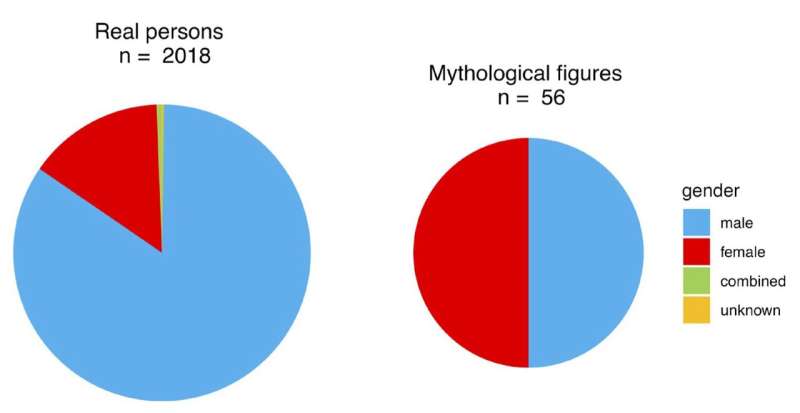This article has been reviewed according to Science X's editorial process and policies. Editors have highlighted the following attributes while ensuring the content's credibility:
fact-checked
proofread
Gender gap in prokaryotes: Only 14.8% of bacteria and archaea named after women

In microbiology, microorganisms may be named after well-known scientific personalities to honor them. Such eponyms are common in the natural sciences, such as pasteurization (after the microbiologist Louis Pasteur).
In the recently published study, "The gender gap in names of prokaryotes honouring persons," Dr. Heike M. Freese and Associate Professor Dr. Markus Göker from the Leibniz Institute DSMZ-German Collection of Microorganisms and Cell Cultures GmbH, in collaboration with three other researchers, investigated the origin of the names of 23,315 prokaryotes, of which 2,018 names honor persons.
Prokaryotes are microorganisms without a nucleus and include both bacteria and archaea. The researchers expected a gender discrepancy even before the study began. However, they also wanted to investigate whether the situation had improved in recent decades, as the proportion of women in microbiology has increased considerably.
A comparison of all honored persons from 1823 to 2022 shows a large difference between names honoring a man (84.4%) and names honoring a woman (14.8%). Although more prokaryotes have been discovered and named in recent decades due to methodological advances, only 4% of those honored in 1993 and 2015 were women, compared to 0% in 1991. Overall, the gender gap has barely narrowed since the first woman was honored in 1947. However, the number of women whose contributions to microbiology could have been recognized has increased considerably over time. This gender gap may be due to the fact that many of the highest and most prestigious positions continue to be held by men.
This study, published in the International Journal of Systematic and Evolutionary Microbiology, is the first on the naming of prokaryotes from a gender perspective and aims to motivate other researchers to gradually close the gender gap. Naming prokaryotes after females could at least increase the visibility of women who have contributed to microbiology or other sciences, helping young women to find role models. There are a sufficient number of outstanding female scientists to choose from when naming species.
More information: Heike M. Freese et al, The gender gap in names of prokaryotes honouring persons, International Journal of Systematic and Evolutionary Microbiology (2023). DOI: 10.1099/ijsem.0.006115
Provided by Leibniz-Institut DSMZ-Deutsche Sammlung von Mikroorganismen und Zellkulturen GmbH





















